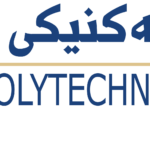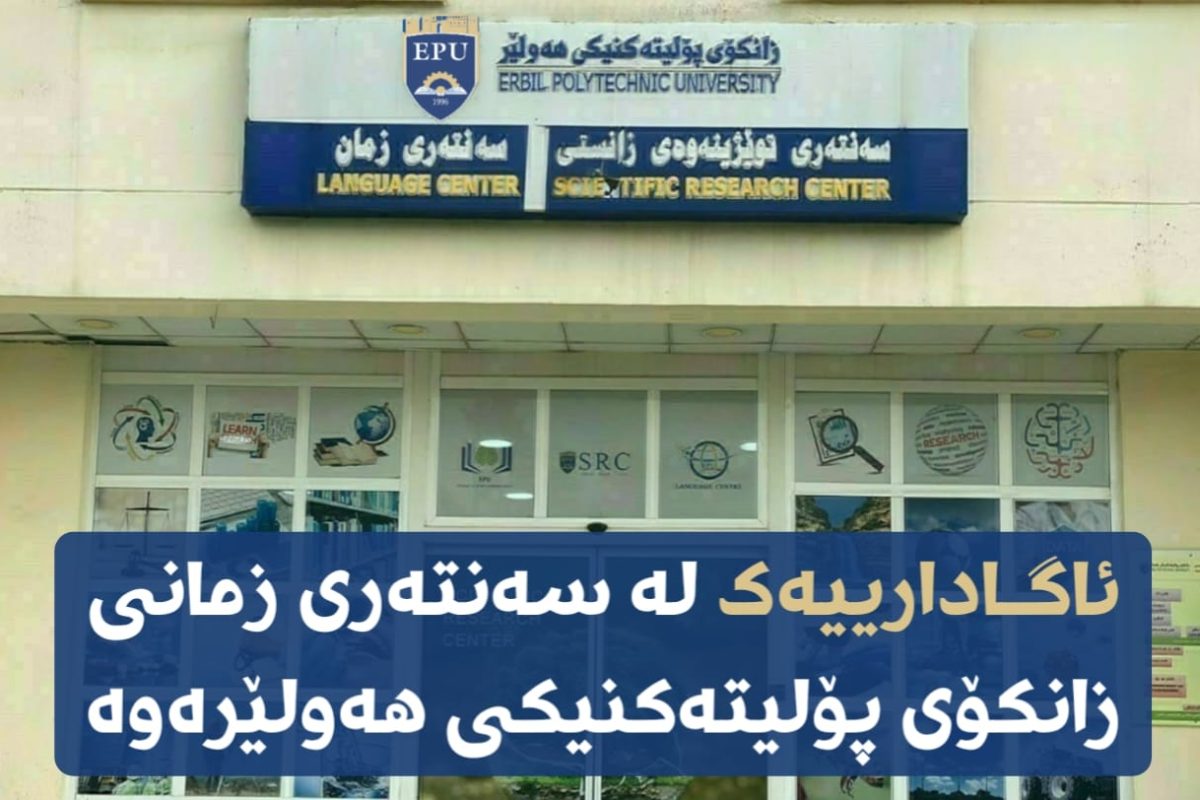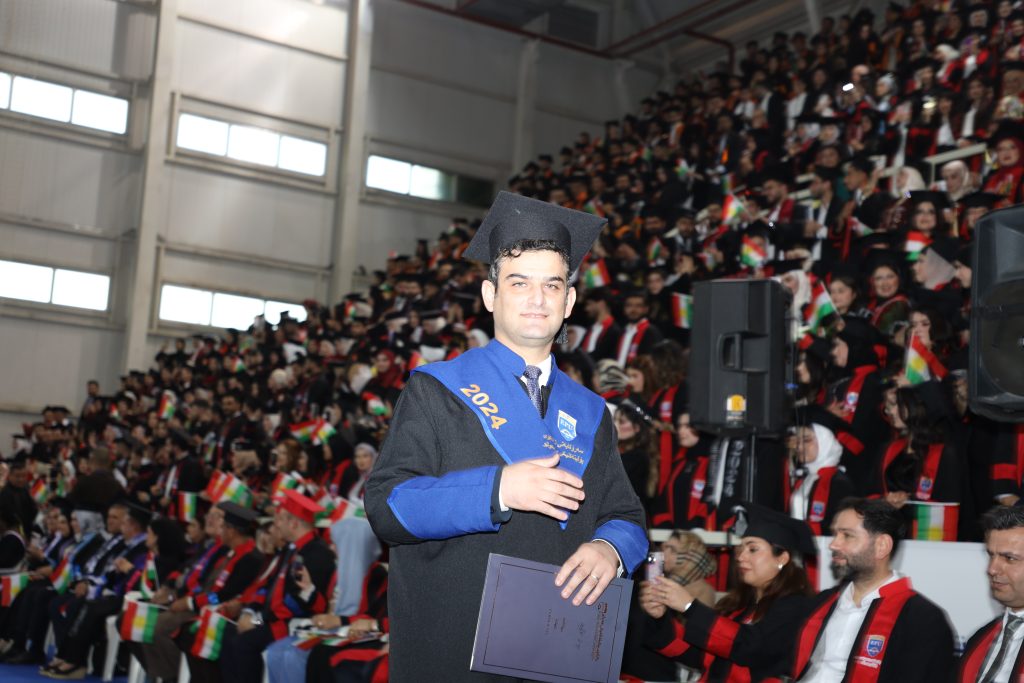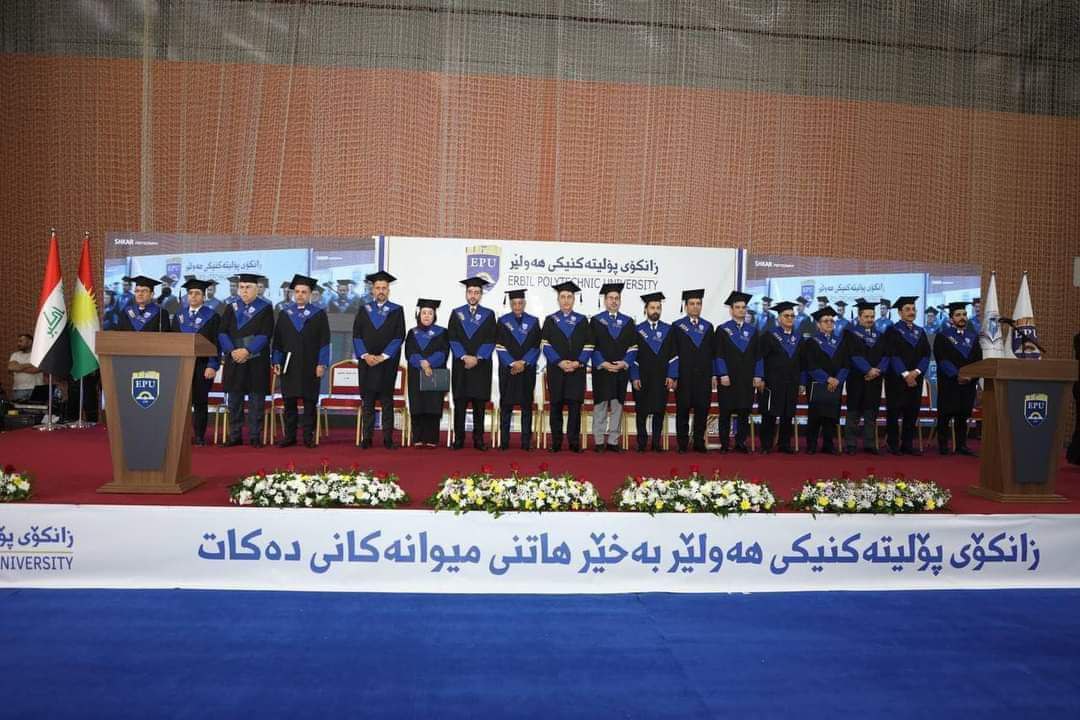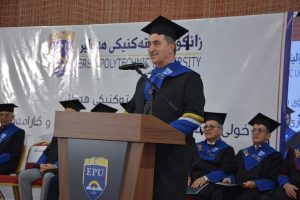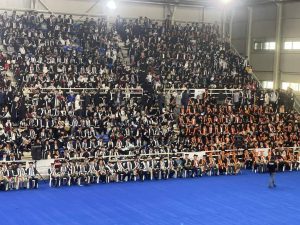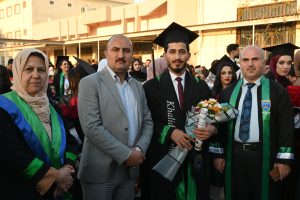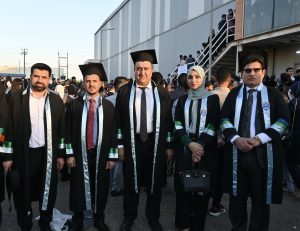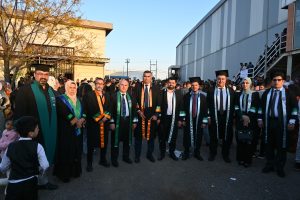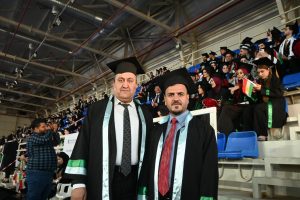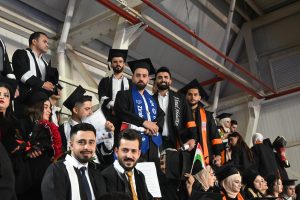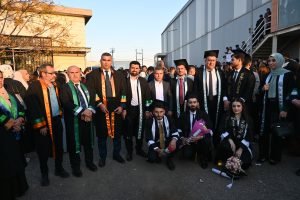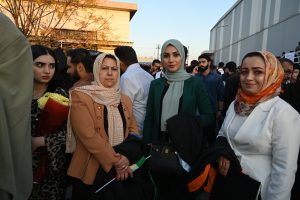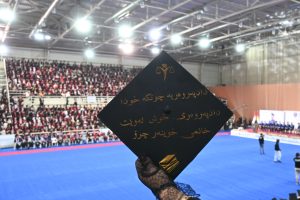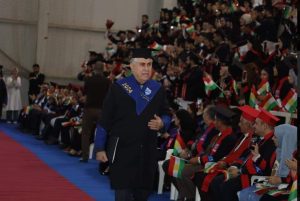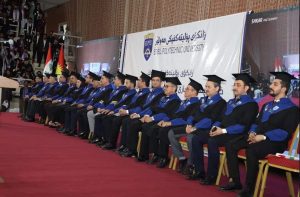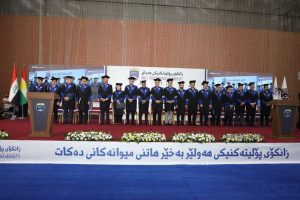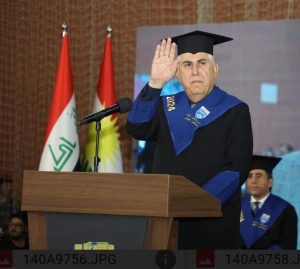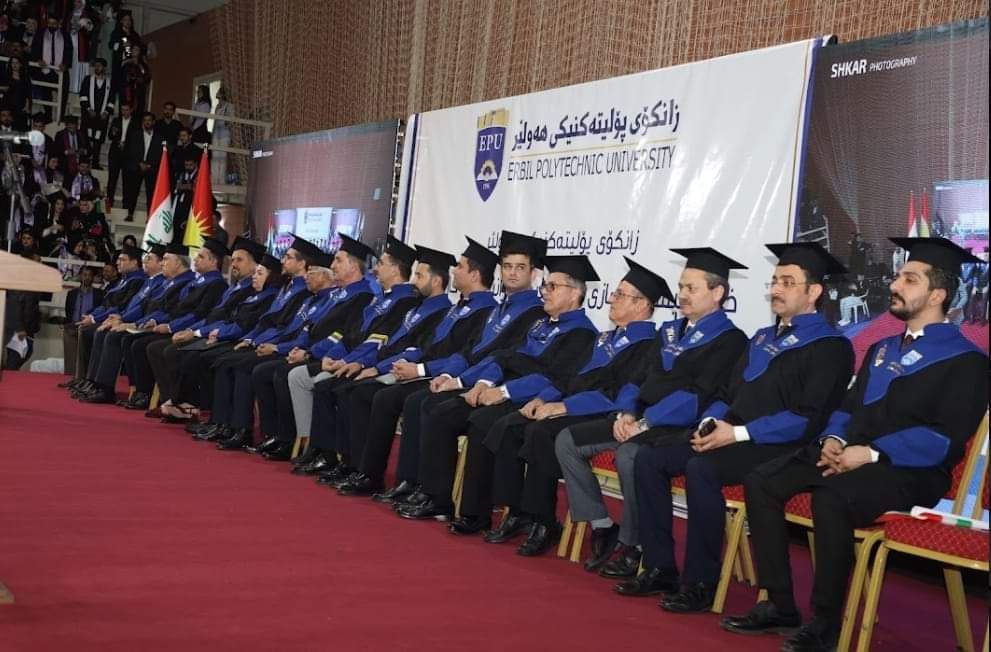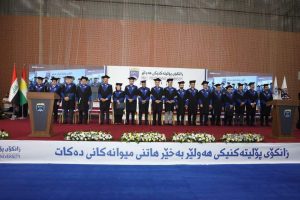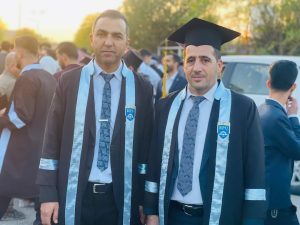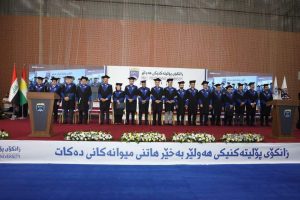ئاگاداری سەرجەم بەشداربووانی خولی (13)ی فێرکاری دەکەینەوە کە تاقیکردنەوەکانی کۆتایی خولەکە بەم رێنماییانەی لای خوارەوە دەبێت:
- .تاقیکردنەوەکان بەپێی ئەو خشتەیە دەبێت کە لەلایەن سەنتەرەکانی زمان بڵاوکراوەتەوە.
- سەرجەم تاقیکردنەوەکان لە کاتی بەیانیان و ئێواران بە پێی ئەو خشتەیە دەبێت کە لەلایەن سەنتەر بڵاو دەکرێتەوە ،پێویستە بەشداربوو (30) خولەک پێش تاقیکردنەوە ئامادەبێت بۆ دۆزینەوەی ناو و هۆڵەکەی.
- هيچ روونكردنەوەيەك لە لايەن چاودێرانى هۆڵەکە سەبارەت بە پرسيارەكان نادرێت و پرسياركردن لە چاودێرانى هۆڵ ڕێگە پێدراو نيە.
- هێنانە ژوورەوەى مۆبايل و هەر ئامێرێکى زیرەک بۆ هۆڵى تاقيكردنەوە قەدەغەیە.
- گزيكردن بەشداربوو بێ بەش دەكات لە تاقيكردنەوە و خولەکە.
- پێویستە بەشداربووان پاسپۆرتی ڕەسەن(ئەصلی)ی لابێت ، هیچ بیانوویەک بۆ نەهێنانی پاسپۆڕتی ڕەسەن قبول کراو نابێ و بە پێچەوانەوە ناتوانێ بەشداری لە تاقیکردنەوە بکات.
- تاقیکردنەوەکان لە کۆلێژی تەکنیکی ئەندازیاری/ زانکۆی پۆلیتەکنیکی هەولێر ئەنجام دەدرێت.
- آ. ڕۆژی شەممە لە کاتی بەیانیان کاتژمێر (09) بەیانی دەست پێدەکات.
ب. ڕۆژی شەممە لە کاتی ئێواران کاتژمێر (02:00) دوای نیوەڕۆ دەست پێدەکات.
ج. ڕۆژی یەک شەممە تەنها کاتی ئێواران تاقیکردنەوە هەیە و کاتژمێر (02:00) بەیانی دەست پێدەکات.
د. ڕۆژی دووشەممە لە کاتی بەیانیان کاتژمێر (09) بەیانی دەست پێدەکات.
ب. ڕۆژی دووشەممە لە کاتی ئێواران کاتژمێر (02:00) دوای نیوەڕۆ دەست پێدەکات.
تێبینی: لیستی ناوی بەشداربووانی ئاستی Elementary لەو لینکەی خوارەوە دایە
بە هیوای سەرکەوتن بۆ گشت بەشداربووان
بەڕێوەبەرایەتی سەنتەری زمان
زانکۆی پۆکیتەکنیکی هەولێر
2024/11/15

